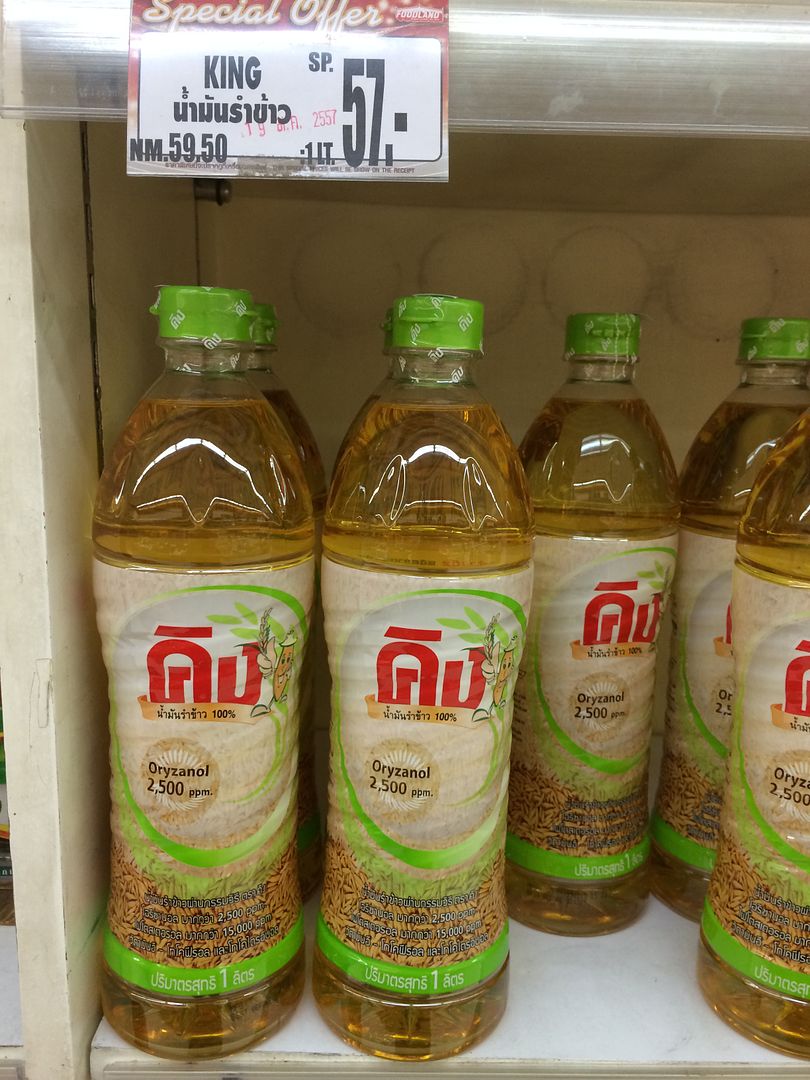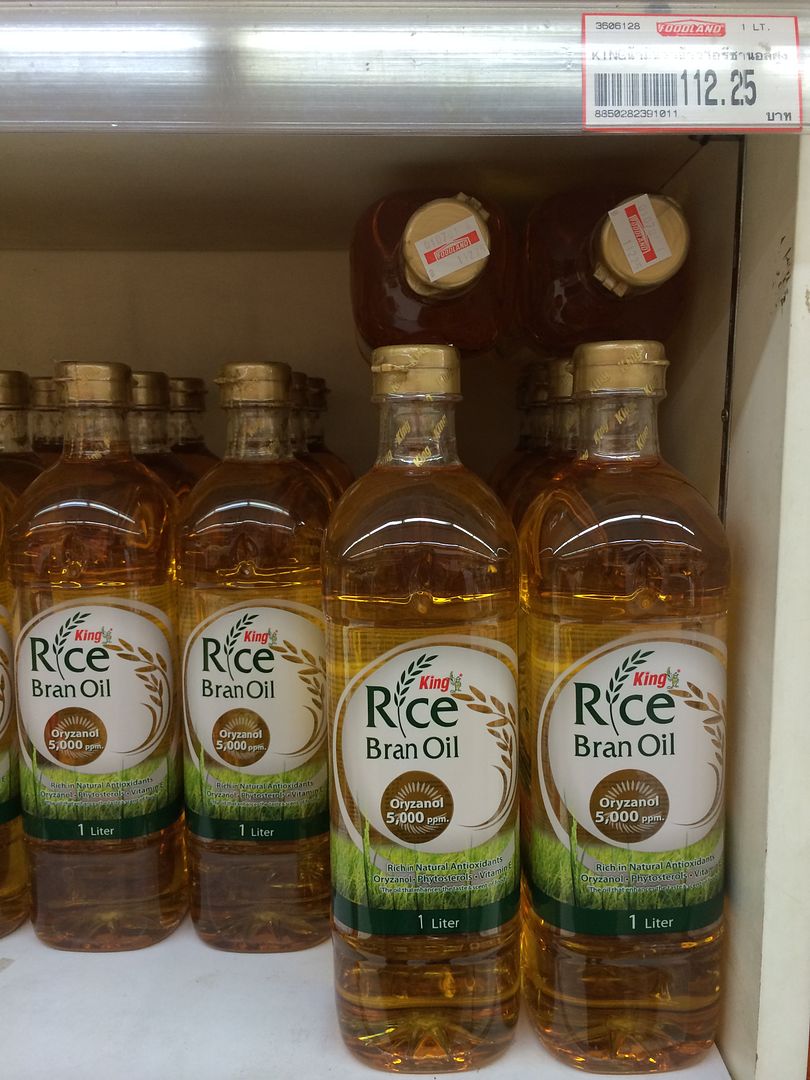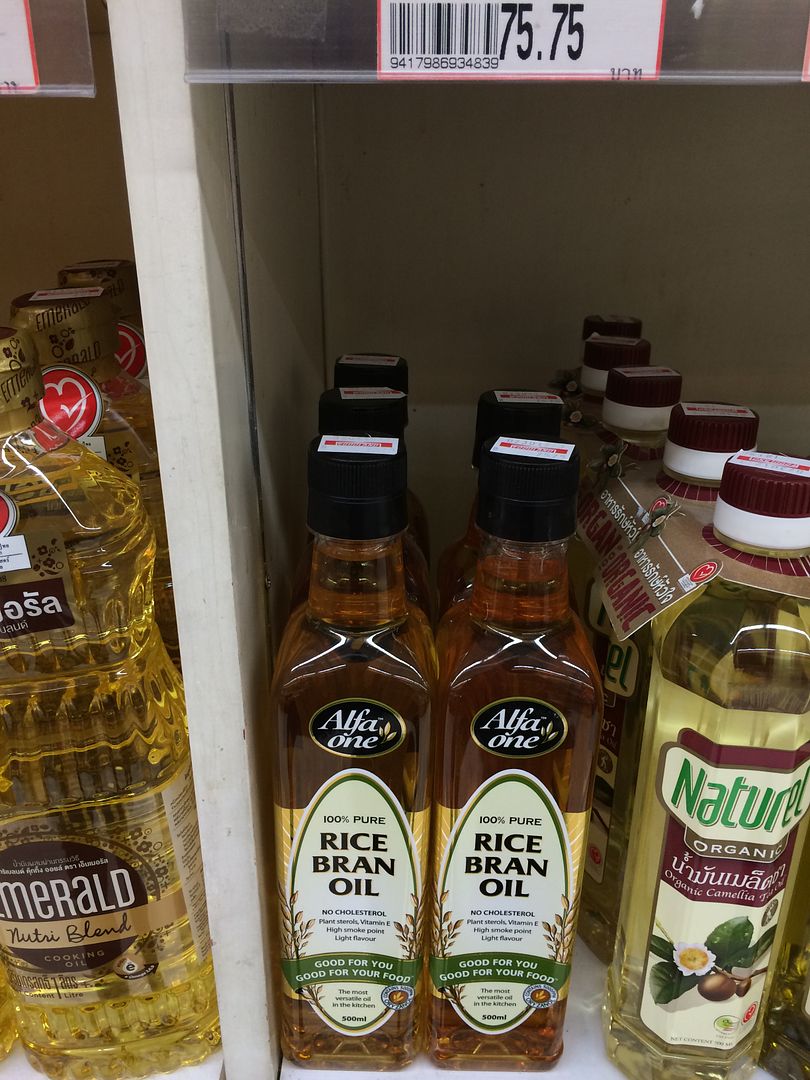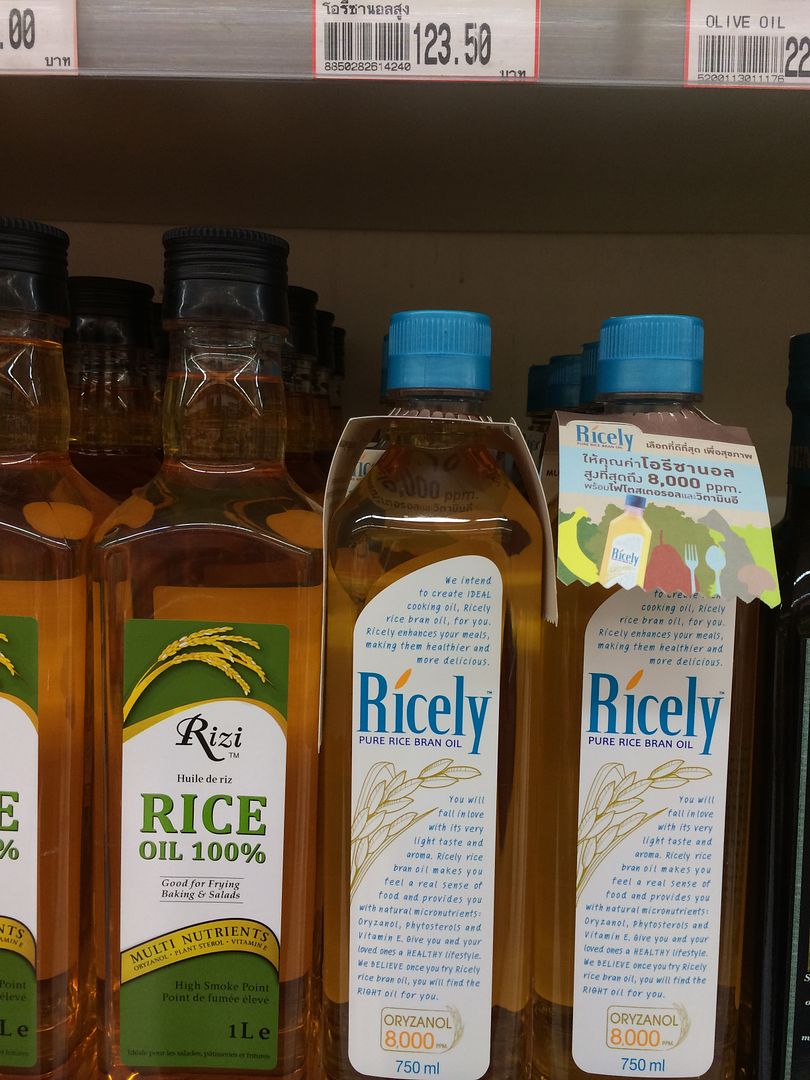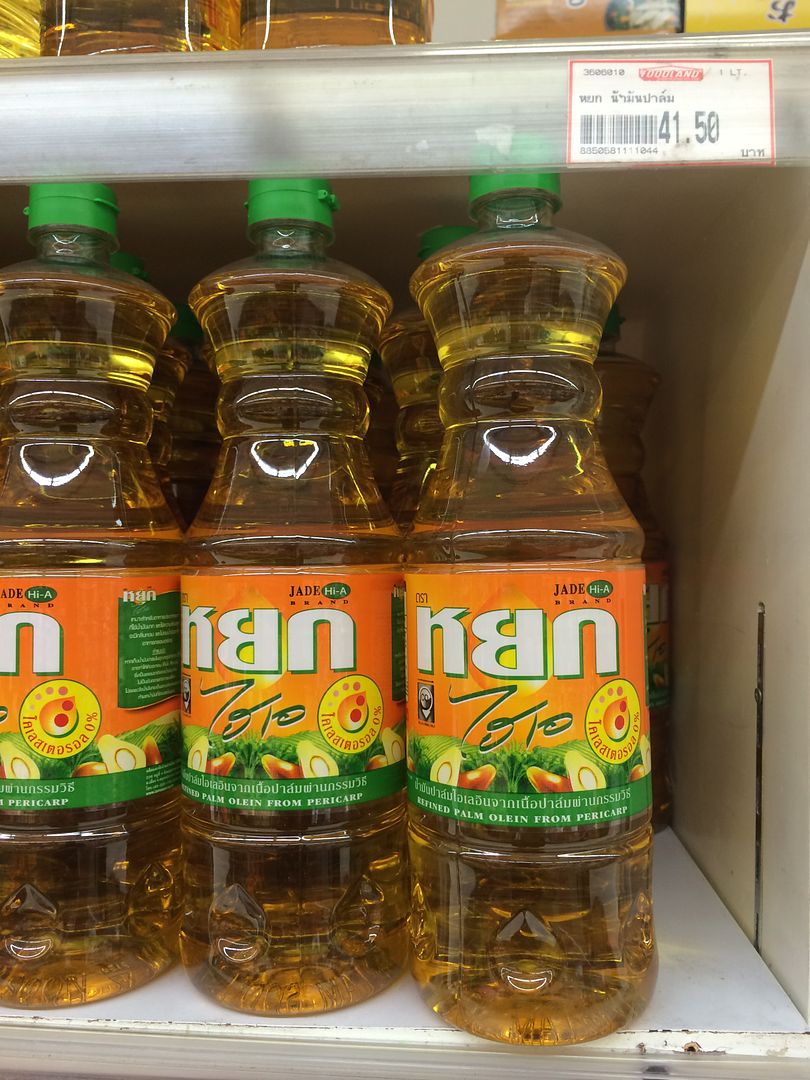- Joined
- Jul 10, 2008
- Messages
- 24,581
- Points
- 0
6 Healthiest Cooking Oils
I often get asked which are the healthiest cooking oils for a vegetarian or vegan. I have been outspoken about not using canola, vegetable soybean oil (You can read more about this in my post 5 Cooking Oils You Think Are Healthy…But Aren’t. Make sure you sign up for my email list to get updates). I know many vegans have grown accustomed to using canola or earth balance as their staple oil, so this is a list of oils that are healthy and useful for vegetarian or vegan cooking. Not all of the oils are vegan, but there are some vegan choices on the list.
Some of you may be surprised to find animal fats like ghee on a list of the healthiest cooking oils. We’ve been taught to fear saturated fats like butter for so long that it can be hard to look seriously at all the evidence that says that saturated fats are not something to fear. However, the amount of evidence that links saturated fats and cholesterol to heart disease is slim to none. Unfortunatley, the medical world is slow to come around to this evidence and continue to prescribe unhealthy and ineffective low-fat diets and cholesterol lowering drugs to those with heart disease. Watch this video to get a better understanding of this issue. Even world renowned heart surgeon Dr. Dwight Lundell has spoken out against the vilification of saturated fats:
Animal fats contain less than 20% omega-6 and are much less likely to cause inflammation than the supposedly healthy oils labelled polyunsaturated. Forget the “science” that has been drummed into your head for decades. The science that saturated fat alone causes heart disease is non-existent. The science that saturated fat raises blood cholesterol is also very weak. Since we now know that cholesterol is not the cause of heart disease, the concern about saturated fat is even more absurd today.” - Dr. Dwight Lundell, MD Cardiologist (source)
To put it simply, the evidence that links heart disease to inflammation caused by processed foods like white flour, white sugar and chemical additives is much stronger.
Dr. Lundell goes on to explain:
What you can do is choose whole foods your grandmother served and not those your mom turned to as grocery store aisles filled with manufactured foods. By eliminating inflammatory foods and adding essential nutrients from fresh unprocessed food, you will reverse years of damage in your arteries and throughout your body from consuming the typical American diet.”
This is why I am an advocate of traditional food. Traditional foods are precisely the ones that your great-grandmother served before most families’ pantries filled up with fake industrialized foods.
The following list will present 6 of the healthiest cooking oils. I’ll also list the smoke point of each oil, which is the highest temperature that an oil can be heated before becoming dangerous (oxidized or carcinogenic). Knowing the smoke point of each oil will help you determine whether to use it in low or high temperature cooking.
1. Ghee (Clarified Butter)

Ghee is probably my favorite cooking oil. It was traditionally used in India for ayurvedic cooking. I use it the most because it has wonderful health benefits (only if you get grassfed ghee) and has a rather high smoke point. “ghee is rich in the fat soluble vitamins A, D, and K2. It is also rich in CLA (conjugated linoleic acid) — the essential fatty acid found almost exclusively in grass-fed animals which is now believed to protect against cancer, heart disease, and type II diabetes.” (source)
Because the milk solids have been removed from ghee, this means that casein and lactose, the elements in dairy that many people are sensitive to, have been removed. Often, those with dairy sensitivities can tolerate ghee (consult a doctor before trying). The removal of the milk solids also allows you to use ghee at a higher temperature (up to 485°).
I use ghee for any cooking in a skillet like stir frys, scrambled eggs, sauteed veggies, etc.
2. Coconut oil

Not only does coconut have a wonderful flavor that goes great with any sweet baked good or even some savory dishes (especially thai food) it also has wonderful health benefits. Sometimes cooking with this oil brings a coconutty flavor to the dish, but I have used it successfully in many dishes with other dominant flavors that mask the coconut flavor. Coconut oil has been said to aid in weight loss, support heart health, boost metabolism and benefit skin (source). For a great resource on repairing metabolism naturally check out one of my favorite books on the subject The Nourished Metabolism.
Raw virgin coconut oil is best used in low temperature cooking or baking. Refined coconut oil has a higher smoke point and less of a coconut flavor, but has less health benefits than raw coconut oil. Refined coconut oil is still a good option for occasional high heat cooking like frying. When looking for coconut oil make sure that it is not hydrogenated or treated with hexane.
Smoke point: Virgin, raw or unrefined 280°-365°, Refined 400°-450°
3. Olive oil

Olive oil is a heart healthy fat that that contains beneficial antioxidants and has also been shown to have anti-inflammatory properties. It is best used for cold food (like salad dressing or drizzling over foods), but can be used in some low-heat cooking.
Unfortunatley, it has been discovered that some unsavory cheap olive oil dealers have combined olive oil with cheap vegetable oils while still labeling the bottle as 100% olive oil, so make sure the olive oil you buy is pure, otherwise you may unwittingly be consuming unhealthy oils. Read this article for more info on how make sure your olive oil is real.
Smoke point: 320°-350°
4. Avocado Oil (sparingly), source low-PUFA brands like this one

Avocado is my favorite frying oil because it has such a high smoke point (475°-520°). However, it does contains a fair amount of polyunsaturated fats (PUFA) which, in excess, have been known to cause inflammation. Because of this, I don’t use avocado oil as my everyday cooking oil, but it is a good choice for occasional use. You can also look for brands that offer avocado oil with low PUFA content like the Chosen Foods brand. To learn more about PUFAs read this article.
Smoke point: 475°-520°
5. Palm oil (sustainably sourced)

Palm oil is a great healthy option for high heat cooking. It is made from the palm fruit which is native to africa. There has been a lot of controversy surrounding palm oil because many palm oil plantations have contributed to the decimation of the rainforest. However, you can source responsible and sustainably harvested palm oil (see below for where to buy). See this article for more info about sustainably harvested palm oil.
Smoke point: 430°-455°
6. Butter

Contrary to popular belief high-quality grassfed butter can be good for you. Although the mainstream media is slow to catch up, the link between saturated fats, cholesterol and poor heart health has been disproven (see the intro paragraph above for details).
Our bodies need dietary cholesterol to function properly. So, long story short, don’t worry about eggs or butter because your body (and brain especially) need cholesterol. Read more about the health of butter here.
Make sure you source good quality grass fed butter. Organic raw grassfed butter is the best option. Organic Valley pasture butter is a great option too. Kerrygold butter is also a good choice and very affordable. Butter should be used in low temperature cooking since the smoke point is 325°-375°.
Smoke point: 325°-375°
I often get asked which are the healthiest cooking oils for a vegetarian or vegan. I have been outspoken about not using canola, vegetable soybean oil (You can read more about this in my post 5 Cooking Oils You Think Are Healthy…But Aren’t. Make sure you sign up for my email list to get updates). I know many vegans have grown accustomed to using canola or earth balance as their staple oil, so this is a list of oils that are healthy and useful for vegetarian or vegan cooking. Not all of the oils are vegan, but there are some vegan choices on the list.
Some of you may be surprised to find animal fats like ghee on a list of the healthiest cooking oils. We’ve been taught to fear saturated fats like butter for so long that it can be hard to look seriously at all the evidence that says that saturated fats are not something to fear. However, the amount of evidence that links saturated fats and cholesterol to heart disease is slim to none. Unfortunatley, the medical world is slow to come around to this evidence and continue to prescribe unhealthy and ineffective low-fat diets and cholesterol lowering drugs to those with heart disease. Watch this video to get a better understanding of this issue. Even world renowned heart surgeon Dr. Dwight Lundell has spoken out against the vilification of saturated fats:
Animal fats contain less than 20% omega-6 and are much less likely to cause inflammation than the supposedly healthy oils labelled polyunsaturated. Forget the “science” that has been drummed into your head for decades. The science that saturated fat alone causes heart disease is non-existent. The science that saturated fat raises blood cholesterol is also very weak. Since we now know that cholesterol is not the cause of heart disease, the concern about saturated fat is even more absurd today.” - Dr. Dwight Lundell, MD Cardiologist (source)
To put it simply, the evidence that links heart disease to inflammation caused by processed foods like white flour, white sugar and chemical additives is much stronger.
Dr. Lundell goes on to explain:
What you can do is choose whole foods your grandmother served and not those your mom turned to as grocery store aisles filled with manufactured foods. By eliminating inflammatory foods and adding essential nutrients from fresh unprocessed food, you will reverse years of damage in your arteries and throughout your body from consuming the typical American diet.”
This is why I am an advocate of traditional food. Traditional foods are precisely the ones that your great-grandmother served before most families’ pantries filled up with fake industrialized foods.
The following list will present 6 of the healthiest cooking oils. I’ll also list the smoke point of each oil, which is the highest temperature that an oil can be heated before becoming dangerous (oxidized or carcinogenic). Knowing the smoke point of each oil will help you determine whether to use it in low or high temperature cooking.
1. Ghee (Clarified Butter)

Ghee is probably my favorite cooking oil. It was traditionally used in India for ayurvedic cooking. I use it the most because it has wonderful health benefits (only if you get grassfed ghee) and has a rather high smoke point. “ghee is rich in the fat soluble vitamins A, D, and K2. It is also rich in CLA (conjugated linoleic acid) — the essential fatty acid found almost exclusively in grass-fed animals which is now believed to protect against cancer, heart disease, and type II diabetes.” (source)
Because the milk solids have been removed from ghee, this means that casein and lactose, the elements in dairy that many people are sensitive to, have been removed. Often, those with dairy sensitivities can tolerate ghee (consult a doctor before trying). The removal of the milk solids also allows you to use ghee at a higher temperature (up to 485°).
I use ghee for any cooking in a skillet like stir frys, scrambled eggs, sauteed veggies, etc.
2. Coconut oil

Not only does coconut have a wonderful flavor that goes great with any sweet baked good or even some savory dishes (especially thai food) it also has wonderful health benefits. Sometimes cooking with this oil brings a coconutty flavor to the dish, but I have used it successfully in many dishes with other dominant flavors that mask the coconut flavor. Coconut oil has been said to aid in weight loss, support heart health, boost metabolism and benefit skin (source). For a great resource on repairing metabolism naturally check out one of my favorite books on the subject The Nourished Metabolism.
Raw virgin coconut oil is best used in low temperature cooking or baking. Refined coconut oil has a higher smoke point and less of a coconut flavor, but has less health benefits than raw coconut oil. Refined coconut oil is still a good option for occasional high heat cooking like frying. When looking for coconut oil make sure that it is not hydrogenated or treated with hexane.
Smoke point: Virgin, raw or unrefined 280°-365°, Refined 400°-450°
3. Olive oil

Olive oil is a heart healthy fat that that contains beneficial antioxidants and has also been shown to have anti-inflammatory properties. It is best used for cold food (like salad dressing or drizzling over foods), but can be used in some low-heat cooking.
Unfortunatley, it has been discovered that some unsavory cheap olive oil dealers have combined olive oil with cheap vegetable oils while still labeling the bottle as 100% olive oil, so make sure the olive oil you buy is pure, otherwise you may unwittingly be consuming unhealthy oils. Read this article for more info on how make sure your olive oil is real.
Smoke point: 320°-350°
4. Avocado Oil (sparingly), source low-PUFA brands like this one

Avocado is my favorite frying oil because it has such a high smoke point (475°-520°). However, it does contains a fair amount of polyunsaturated fats (PUFA) which, in excess, have been known to cause inflammation. Because of this, I don’t use avocado oil as my everyday cooking oil, but it is a good choice for occasional use. You can also look for brands that offer avocado oil with low PUFA content like the Chosen Foods brand. To learn more about PUFAs read this article.
Smoke point: 475°-520°
5. Palm oil (sustainably sourced)

Palm oil is a great healthy option for high heat cooking. It is made from the palm fruit which is native to africa. There has been a lot of controversy surrounding palm oil because many palm oil plantations have contributed to the decimation of the rainforest. However, you can source responsible and sustainably harvested palm oil (see below for where to buy). See this article for more info about sustainably harvested palm oil.
Smoke point: 430°-455°
6. Butter

Contrary to popular belief high-quality grassfed butter can be good for you. Although the mainstream media is slow to catch up, the link between saturated fats, cholesterol and poor heart health has been disproven (see the intro paragraph above for details).
Our bodies need dietary cholesterol to function properly. So, long story short, don’t worry about eggs or butter because your body (and brain especially) need cholesterol. Read more about the health of butter here.
Make sure you source good quality grass fed butter. Organic raw grassfed butter is the best option. Organic Valley pasture butter is a great option too. Kerrygold butter is also a good choice and very affordable. Butter should be used in low temperature cooking since the smoke point is 325°-375°.
Smoke point: 325°-375°
Last edited:



 all veggies
all veggies

